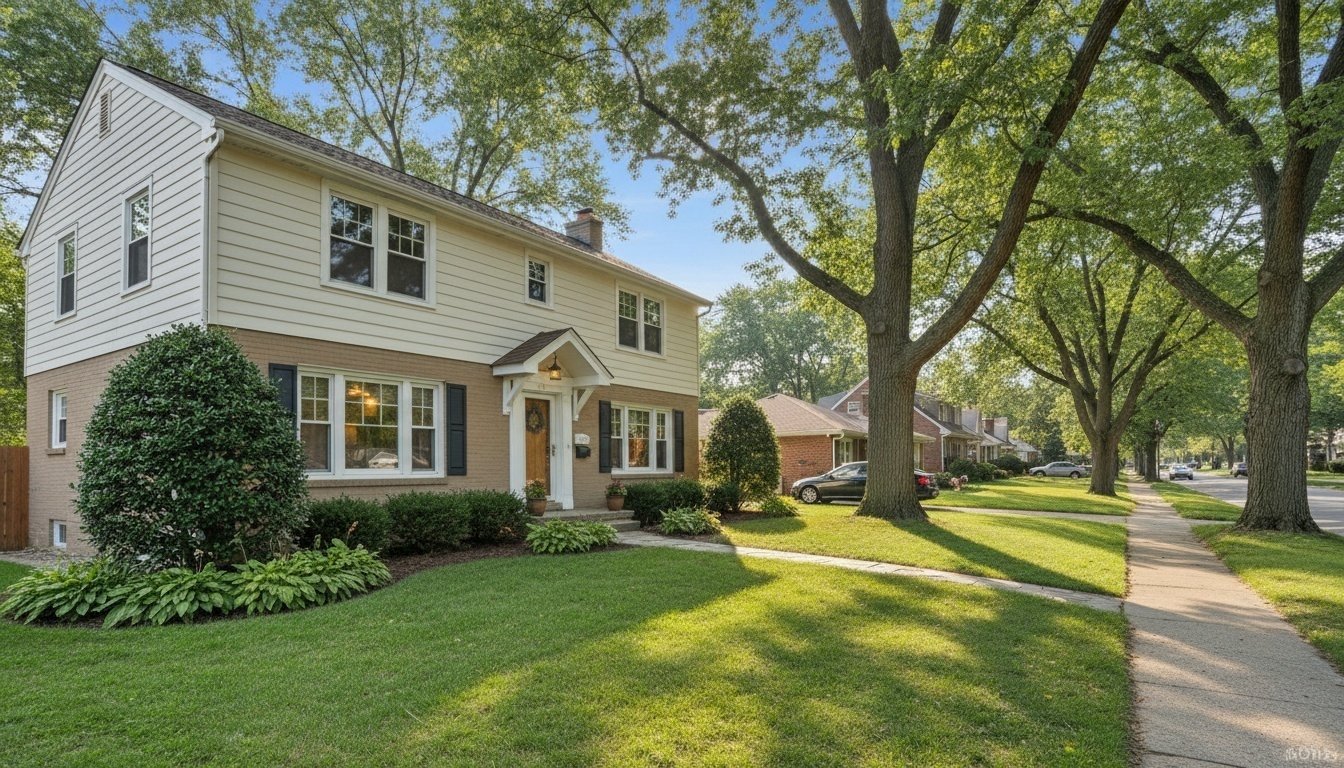As the largest generation in the United States, millennials are now a dominant force in the housing market. Born roughly between 1981 and 1996, this generation has come of age during times of rapid technological advancement, economic upheaval, and shifting social norms. As they enter their prime home-buying years, millennials are reshaping the real estate landscape with their unique preferences and priorities.
Understanding what millennials want in a home is crucial for real estate professionals, home sellers, and the housing industry at large. This article explores the key factors influencing millennial home-buying decisions and the features they prioritize in their search for the perfect home.
Financial Considerations
For many millennials, affordability is the top priority when it comes to purchasing a home. This generation came of age during the Great Recession and has faced significant economic challenges, including stagnant wages and rising living costs. As a result, they're often more cautious about taking on large financial commitments.
Student debt plays a significant role in millennial home-buying decisions. With many carrying substantial student loan burdens, the ability to balance mortgage payments with existing debt obligations is a crucial consideration. This unfortunate reality has increased interest in financial tools and alternative mortgage options that can make homeownership more accessible.
Millennials are often drawn to first-time homebuyer programs, FHA loans, and other options that allow for lower down payments. They're also more likely to explore creative financing solutions, such as shared equity arrangements or rent-to-own agreements. This generation values transparency in the home-buying process and appreciates lenders and real estate professionals who can clearly explain financial options and long-term implications.

Location Preferences
The debate between urban and suburban living continues to evolve for millennial homebuyers. While many still prefer the excitement and convenience of city life, others are drawn to the space and affordability often found in suburban areas. This decision is often influenced by factors such as career opportunities, family planning, and lifestyle preferences.
Proximity to work, entertainment, and amenities remains a key factor in millennial home-buying decisions. However, the rise of remote work has somewhat shifted this dynamic, allowing some millennials to prioritize other factors over a short commute. Still, many value the option to easily access urban centers, even if they don't need to commute daily.
Home Features and Design
When it comes to the homes themselves, millennials have distinct preferences that differ from previous generations. Open floor plans and multifunctional spaces top the list of desired features. This generation values homes that can adapt to their changing needs, whether it's hosting friends for dinner, working from home, or starting a family.
Modern, updated kitchens and bathrooms are also high on the millennial wish list. They prefer clean lines, contemporary fixtures, and efficient layouts. Many are willing to compromise on overall square footage in favor of well-designed, high-quality spaces.
The importance of home offices or dedicated workspaces has skyrocketed in recent years, particularly with the surge in remote work popularity. The COVID-19 pandemic accelerated an already growing trend towards flexible work arrangements, and many millennials now expect to work from home at least part of the time. As a result, homes that offer a comfortable, functional space for remote work have become increasingly desirable.
This shift towards remote work has influenced other aspects of millennial home preferences as well. For instance, there's growing interest in homes with good natural lighting, which can boost mood and productivity during long hours spent working from home. Additionally, separate entrances or spaces that can double as client meeting areas are attractive features for those running home-based businesses.
Low-maintenance materials and features are also appealing to millennials. This generation often values experiences over possessions and prefers to spend their free time on activities other than home maintenance. As such, they're drawn to durable, easy-to-clean materials and home designs that minimize upkeep requirements.
.jpg?width=2250&height=1178&name=Untitled%20design%20(49).jpg)
Technology Integration
As digital natives, millennials expect their homes to be equipped with the latest technology. Smart home features, such as programmable thermostats, advanced security systems, and voice-controlled lighting, are highly desirable. These technologies not only offer convenience but also align with millennials' interest in energy efficiency and home management.
High-speed internet connectivity is non-negotiable for most millennial homebuyers. With many working from home, streaming entertainment, and staying connected through social media, a robust internet connection is seen as a utility as essential as electricity or water.
Energy-efficient appliances and systems are another key consideration. Millennials are often willing to pay a premium for homes with Energy Star-rated appliances, efficient HVAC systems, and other features that promise long-term savings on utility bills.
Outdoor Spaces
Contrary to the stereotype of millennials as urban apartment dwellers, many in this generation do value outdoor spaces. However, their preferences differ from those of previous generations. Instead of large, high-maintenance yards, millennials often prefer smaller, more manageable outdoor areas.
In urban settings, balconies, rooftop spaces, or small patios are highly prized. These spaces offer an opportunity for outdoor relaxation, container gardening, or al fresco dining without the time commitment of a large yard.
For those in more suburban areas, millennials often prefer homes with modest yards that offer some private outdoor space without overwhelming maintenance requirements. They're also drawn to neighborhoods with ample community green spaces and parks, which provide opportunities for outdoor recreation without the personal responsibility of upkeep.

Flexibility and Future-Proofing
Millennials tend to think long-term when buying a home, looking for properties that can adapt to their changing needs over time. They value adaptable spaces that can serve multiple purposes as their life circumstances evolve.
Many millennial homebuyers also consider the potential for rental income when purchasing a property. Accessory dwelling units (ADUs), basement apartments, or other features that could generate additional income are seen as valuable assets. This aligns with the gig economy mindset prevalent among millennials and provides a financial cushion in uncertain economic times.
Resale value is another important consideration. Even as they're buying their first homes, many millennials are thinking ahead to their next move. They prefer properties in areas with strong appreciation potential and homes with features that will appeal to future buyers.
Community and Amenities
Beyond the physical features of the home itself, millennials place high value on the surrounding community. They desire neighborhoods with a strong sense of community and opportunities for social interaction. This could manifest in the form of community events, shared spaces, or simply a walkable area that encourages neighbor-to-neighbor interaction.
Shared amenities are particularly appealing to millennial homebuyers. Community features such as gyms, co-working spaces, or communal gardens offer added value without the need for additional square footage within the home itself. These amenities also provide opportunities for community building and align with the sharing economy ethos popular among millennials.
Diversity and inclusivity in neighborhoods are also important factors for many millennial homebuyers. They tend to prefer areas that offer a mix of cultures, backgrounds, and experiences, reflecting their generation's overall value of diversity.
Final Thoughts
As millennials continue to shape the housing market, their preferences are driving significant changes in home design, community planning, and the real estate industry as a whole. From the surge in demand for home offices spurred by remote work trends to the increasing importance of sustainable features, millennial priorities are reshaping what it means to be a desirable property in today's market.
For real estate professionals and home sellers, understanding these preferences is key to successfully appealing to millennial buyers. Features like updated kitchens and bathrooms, smart home technology, and energy-efficient systems can make a property stand out to this generation of homebuyers.
However, it's important to note that millennial preferences are not monolithic and can vary based on individual circumstances, local markets, and changing life stages. As this generation ages, gets married and starts families, their housing needs and wants will continue to evolve.
The real estate industry must remain adaptable and responsive to these changing needs. By staying attuned to millennial priorities – from affordability and flexibility to sustainability and community – industry professionals can better serve this crucial segment of the housing market. As millennials continue to enter their prime home-buying years, their influence on the real estate landscape is only set to grow, shaping the homes and communities of the future.


